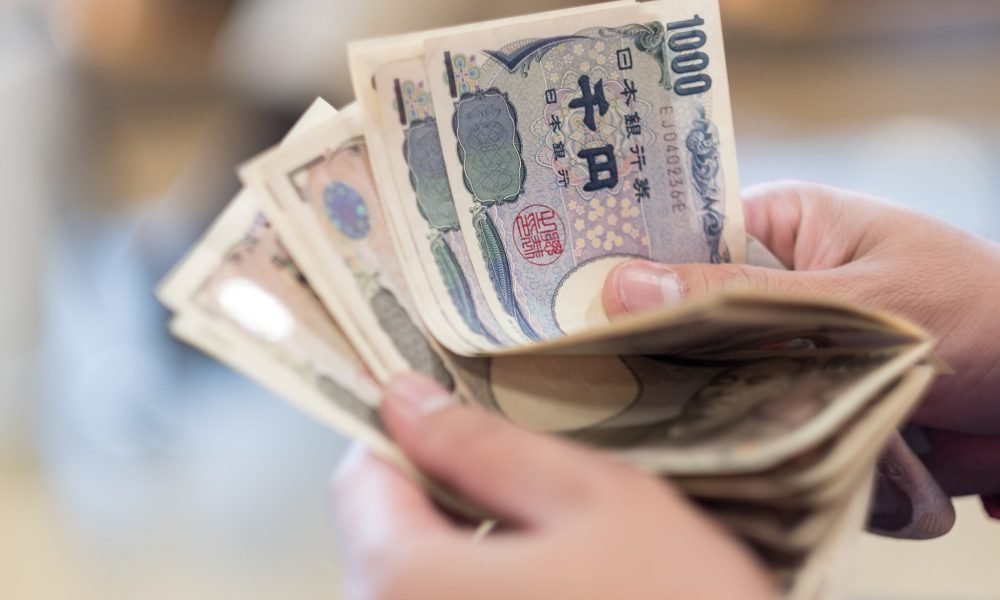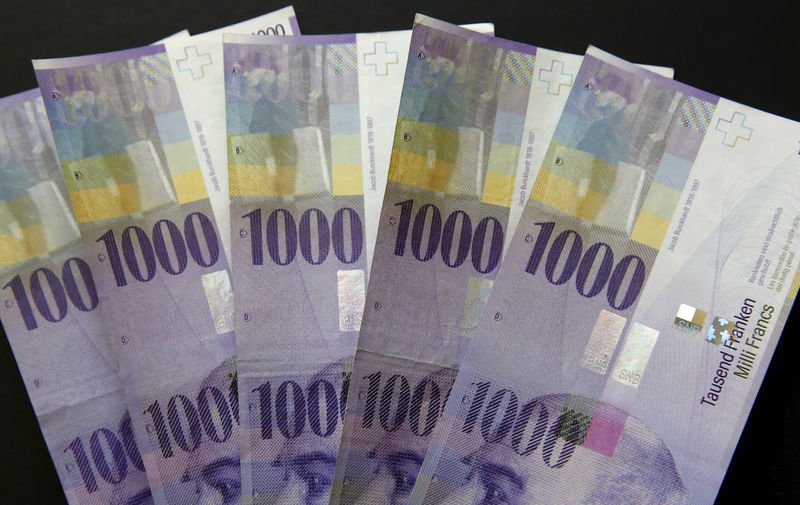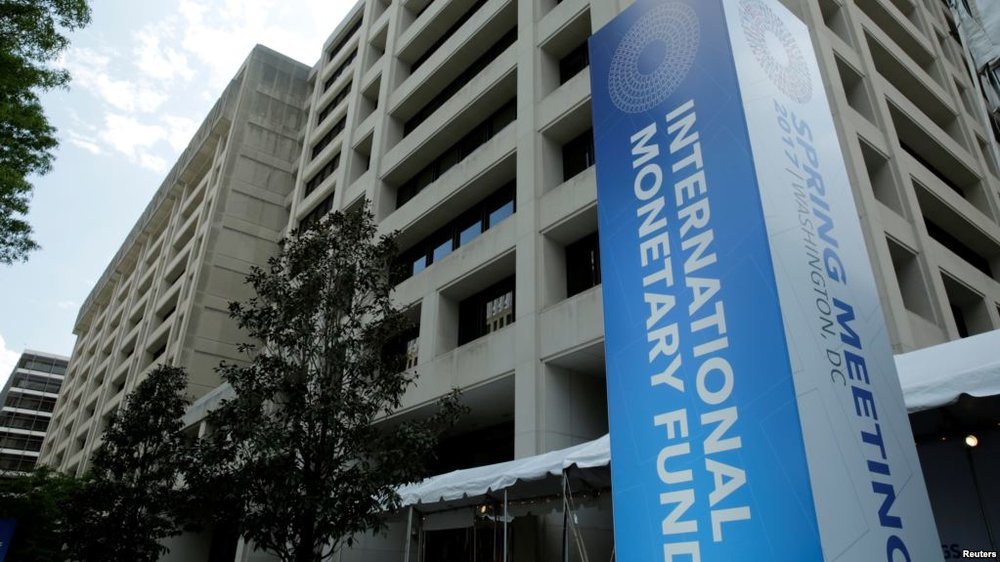
Yen Surges Even As Investors Remain Cautious As A Result Of Volatile Stock Movement

Yen Surges Amid Impeding Factors
The index, S &P 500 dropped to its lowest on a 20-month outlook earlier last week and was trading close to the bear market. However, the three major indexes soared back with their highest daily surge in almost one decade later in the week.
The yen surged regardless of higher stocks, a soft domestic data as well as a fall in the benchmark of Japanese bond yields that dropped into the negative region for the very first time in over a year. According to Scotiabank’s chief FX strategist, Shaun Osborne, the performance suggested that there still exists a demand for a level of insurance against the extended volatility characterizing the holiday period and that provided better support for the yen.

The yen surged regardless of higher stocks, a soft domestic data as well as a fall in the benchmark of Japanese bond yields that dropped into the negative region
Japanese yen was up 0.62 percent against the dollar, and it was at about 110.30 yen. The Swiss Franc which is also a safe-haven currency climbed to 0.9803 with about 0.73%. According to another London-based FX strategist, Lee Hardman, investors are exercising more caution about taking risks with the Swiss franc and Japanese yen gaining. The dollar index which gauges the performance of the dollar against other six primary currencies fell to 96.37 by about 0.11%.
Performance Of The Dollar
In the past couple of weeks, the dollar was affected by increasing expectations that the Feds would pause the tightening cycle earlier than expected or stand at the risk of harming the economy of the U.S. with additional interest rates hikes.
However, regardless of the pressure on the dollar, the dollar index proceeded to gain about 4.6% last year. That was majorly due to the robust economy of America, rising wage pressures and reducing the rate of unemployment. The economic fundamentals caused the Feds to increase the interest rates four different times last year and analysts are projecting that there would be additional hikes if the economic fundamentals do not falter.

The robust economy of America, rising wage pressures and reducing the rate of unemployment caused the dollar index to record gains
Investors are also being cautious as a result of the trade tensions between the US and China as well as the complications surrounding the exit of Britain from the EU. According to Osborne, there is still a high potential risk as well as uncertainty causing investors to be cautious. For some minutes last week, the two chambers of the United States Congress convened, but they didn’t take any steps to stop the partial shutdown of the federal government before they adjourned.
Performance Of Other Currencies
Swiss franc as earlier noted traded steadily at about 0.9848, and it gained against the dollar for two consecutive weeks as a result of risk-off positioning that characterizes the currency markets. The euro was at $1.1440 and traded flat against the dollar. Although it has gained against the dollar in the past couple of weeks, inflation, as well as the economic growth in Europe, is still weaker than the expectations of the European Central Bank. The euro reportedly lost about 4.5% against the dollar last year.
Sterling was badly affected last year by Brexit issues, and it was fetching about $1.2700. Also, the pound lost 6% of its value against the dollar last year. The Australian dollar also gained 0.1% as it rose to 0.7049. It is worthy to note that the performance of the economy of Australia has close ties to China which happens to be its biggest trading partner.
Effect Of Trade Wars In China
According to a Bank of Singapore currency strategist, Sim Moh Siong, emerging market currencies and high beta will likely perform better than expectations if the country gets a trade agreement. Considering the improvement of risk sentiment that accompanied the trade deal as well as some weakness in America’s economy, Moh Siong said he believes that any positive trade development would have a negative effect on the dollar.

Emerging market currencies and high beta will likely perform better than expectations if the country gets a trade agreement
China and the U.S. had a series of trade wars for the better part of last year, and it affected the financial markets globally as the tariffs imposed by both economies affected a lot of goods.
More in Business
-
`
Matthew Perry Foundation Launches Addiction Fellowship at MGH
The impact of addiction on individuals and families is profound, and the need for specialized medical care in this field has...
February 13, 2025 -
`
Celebrity Couples Who Have Ended Their Relationships in 2025
2025 has already seen its fair share of celebrity breakups, and the year is just getting started. From heartfelt announcements to...
February 6, 2025 -
`
How Trump’s Policies Will Reshape Artificial Intelligence in the U.S.
The United States witnessed a significant political shift as Donald Trump took the presidential oath once again. His return to the...
January 31, 2025 -
`
Millie Bobby Brown Shuts Down Age-Shamers with a Powerful Message
From the moment Millie Bobby Brown first appeared as Eleven in “Stranger Things,” she captured hearts worldwide. But growing up in...
January 25, 2025 -
`
Why Outsourcing Payroll Services Is a Smart Business Move
Managing payroll is no small task—it’s a crucial part of any business that ensures employees are paid accurately and on time....
January 15, 2025 -
`
These AI Stocks Should Be on the Watch List of Investors in 2025
The buzz around AI stocks is growing louder than ever. With artificial intelligence shaping industries like healthcare, finance, and tech, smart...
January 8, 2025 -
`
Why the Starbucks Workers Strike Is Expanding Across U.S. Cities
The Starbucks workers’ strike has gained significant momentum, with employees in more U.S. cities joining the movement to address unresolved issues...
January 2, 2025 -
`
Are Shawn Mendes and Camila Cabello Still Close After Breakup?
The connection between Shawn Mendes and Camila Cabello continues to intrigue fans worldwide. Their shared history, from chart-topping collaborations to a...
December 24, 2024 -
`
Here’s What It Takes to Become a Professional Physical Therapist
Physical therapy is a career that blends science, empathy, and problem-solving to help people recover from injuries or improve mobility. Knowing...
December 19, 2024















You must be logged in to post a comment Login